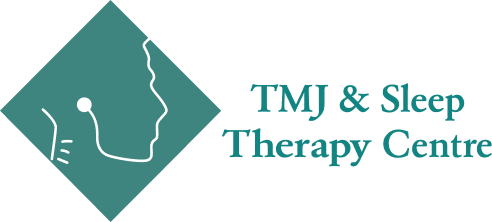Temporomandibular joint (TMJ) disorders (TMJ Disorder) can significantly impact your quality of life, causing discomfort and difficulty in daily activities like eating or speaking. At TMJ Sleep Indiana, we specialize in diagnosing and treating TMJ disorders to help our patients find relief and regain comfort.
What Is TMJ Disorder?
TMJ disorder refers to issues affecting the temporomandibular joint, which connects your jawbone to your skull. This joint plays a crucial role in functions like chewing, speaking, and opening your mouth. When it becomes damaged or stressed, it can lead to pain, dysfunction, and other complications.
Common Symptoms and Warning Signs
Patients often ask, “How do I know if I have a TMJ disorder?” Here are some of the most common symptoms:
- Jaw Pain or Tenderness: A dull ache or sharp pain in the jaw area.
- Difficulty Opening or Closing the Mouth: Stiffness or a locked jaw.
- Clicking or Popping Sounds: Sounds when moving the jaw, often accompanied by discomfort.
- Facial Pain: Pain that radiates from the jaw to the cheeks, temples, or neck.
- Headaches or Migraines: Frequent headaches linked to jaw tension or clenching.
- Ear Issues: Ringing in the ears (tinnitus) or a sensation of fullness without an infection.
Causes and Risk Factors of TMJ Issues
TMJ disorders can develop due to various factors, including:
- Jaw Injury: Trauma or impact to the jaw can damage the joint.
- Teeth Grinding (Bruxism): Chronic clenching or grinding can strain the TMJ.
- Arthritis: Inflammation in the joint caused by osteoarthritis or rheumatoid arthritis.
- Stress: Stress can lead to tension in the jaw and surrounding muscles.
- Malalignment: Poor alignment of teeth or jaw can increase stress on the joint.
Understanding these causes helps guide effective treatment strategies tailored to each individual.
Treatment Options: From Oral Appliances to Therapy
At TMJ Sleep Indiana, we offer a variety of treatments to alleviate TMJ disorder symptoms and restore function:
- Oral Appliances: Custom-made mouthguards or splints help reduce jaw tension and prevent teeth grinding.
- Physical Therapy: Exercises to strengthen jaw muscles and improve range of motion.
- Lifestyle Changes: Stress management techniques, dietary modifications, and posture improvement.
- Medications: Anti-inflammatory drugs or muscle relaxants to reduce pain and inflammation.
- Advanced Procedures: In severe cases, surgical interventions like arthrocentesis or TMJ replacement may be recommended.
Tips for Preventing TMJ Pain and Discomfort
While some causes of TMJ disorders are unavoidable, you can reduce your risk and manage symptoms with these tips:
- Avoid chewing gum or hard foods that strain your jaw.
- Practice stress-relief techniques like meditation or yoga.
- Use ergonomic setups for work to maintain good posture.
- Wear a mouthguard at night if you grind your teeth.
Partner With TMJ Sleep Indiana for Lasting Relief
At TMJ Sleep Indiana, we understand the challenges of living with TMJ disorders and are committed to providing personalized care. Whether you need a custom oral appliance or guidance on lifestyle adjustments, our experienced team is here to help you find relief.
Ready to take the first step toward a pain-free life? Contact TMJ Sleep Indiana today to schedule a consultation and explore treatment options tailored to your needs.





